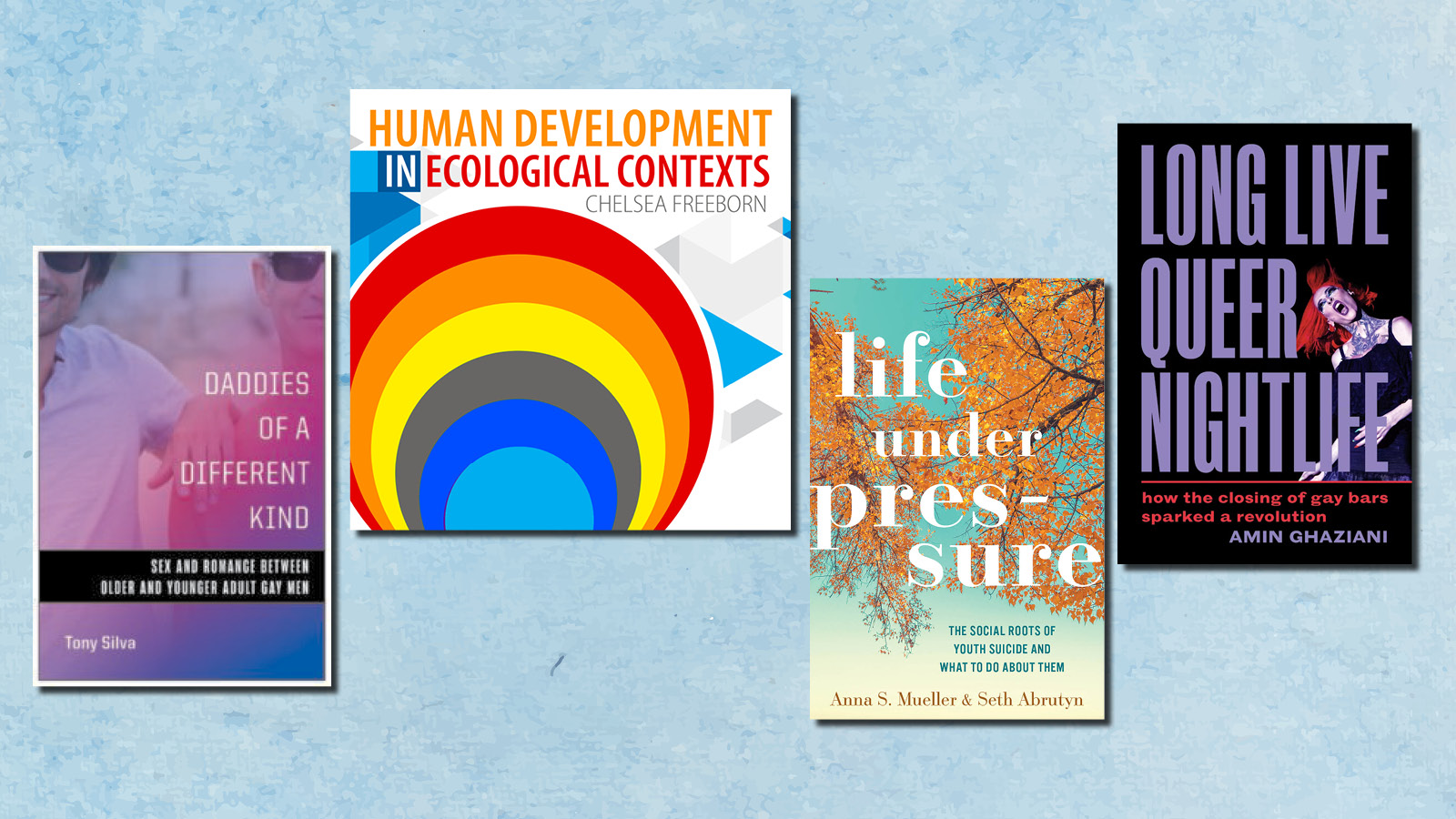

This past year, UBC Sociology faculty have published books covering topics ranging from intimate relationships between older and younger adult men, human development, the social roots of youth suicide, and changes in queer nightlife.
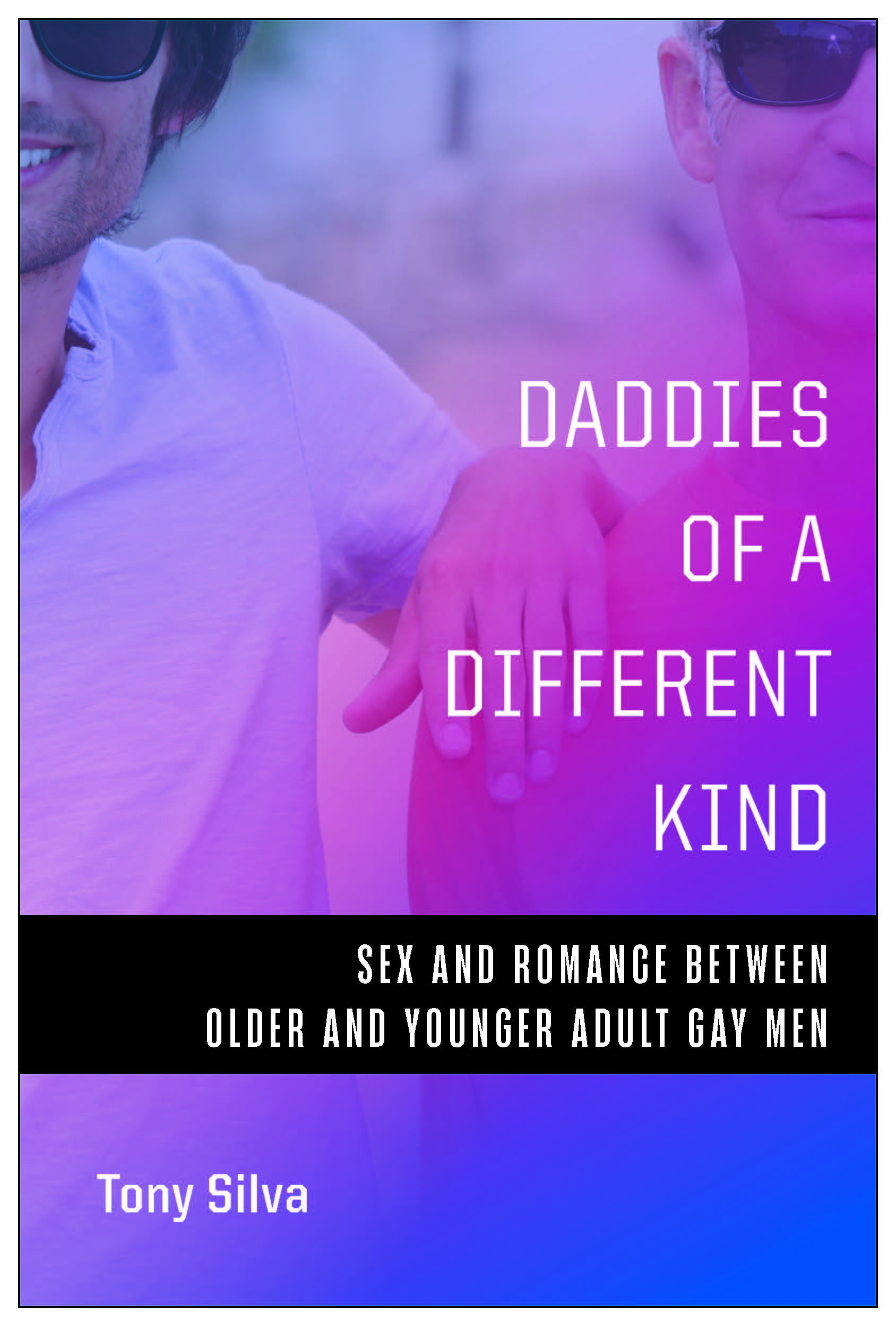

Daddies of a Different Kind
Daddies of a Different Kind: Sex and Romance Between Older and Younger Adult Gay Men
By: Tony Silva (Assistant Professor, UBC Sociology)
What is the book about?
The book is about intimate relationships between older and younger adult men. I interviewed men in their forties through their sixties who partnered with younger adult men, as well as men in their twenties and early thirties who partnered with men substantially older than themselves.
Why did you write this book?
I wanted to find out how men in both groups perceived their age-gap pairings and why they formed these pairings. I also wanted to understand how men defined the term “daddy”, which is a popular term that typically refers to a desirable older man.
I wanted to write this book because there is little research about the topic, even though “daddy” is a commonly used term. Additionally, gay men are the group most likely to form age-gap pairings, yet there has been little investigation about why this pattern exists.
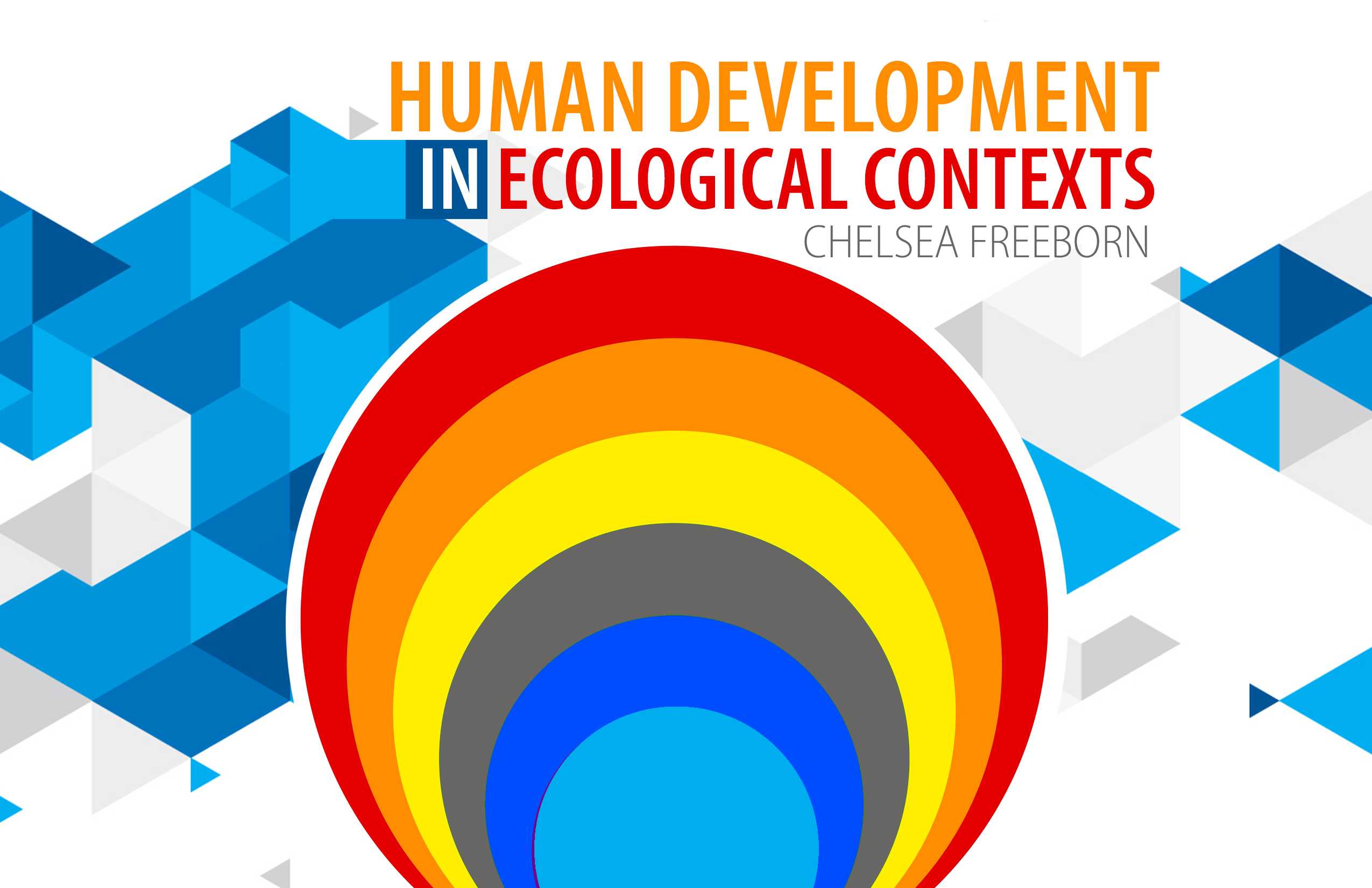

Human Development in Ecological Contexts
Human Development in Ecological Contexts
By: Chelsea Freeborn (Lecturer, UBC Sociology)
What is the textbook about?
Why did you write this textbook?
Many robust textbooks exist in the world of human development but many have been created through a psychological lens. There was a dearth of course material that offered students the space to consider developmental and sociological/ecological points of view. With Human Development in Ecological Contexts, students explore fundamental questions such as: How do familial circumstances and social conditions of life influence learning and development? What aspects of someone’s immediate familial contexts and more distal social environments play a role?
What do you hope that student will take away?
I hope that students are able to learn about development from complex perspectives. I also hope that students have opportunities to consider: What is it that determines the person we become? There is not always one answer to such a question, but a body of knowledge offering multiple ways of knowing may give a chance for students to make deeper sense of the factors that may be involved in their response. The textbook allows space for students to think about their own ideas and assumptions about what makes people who they are and what influences who they become.
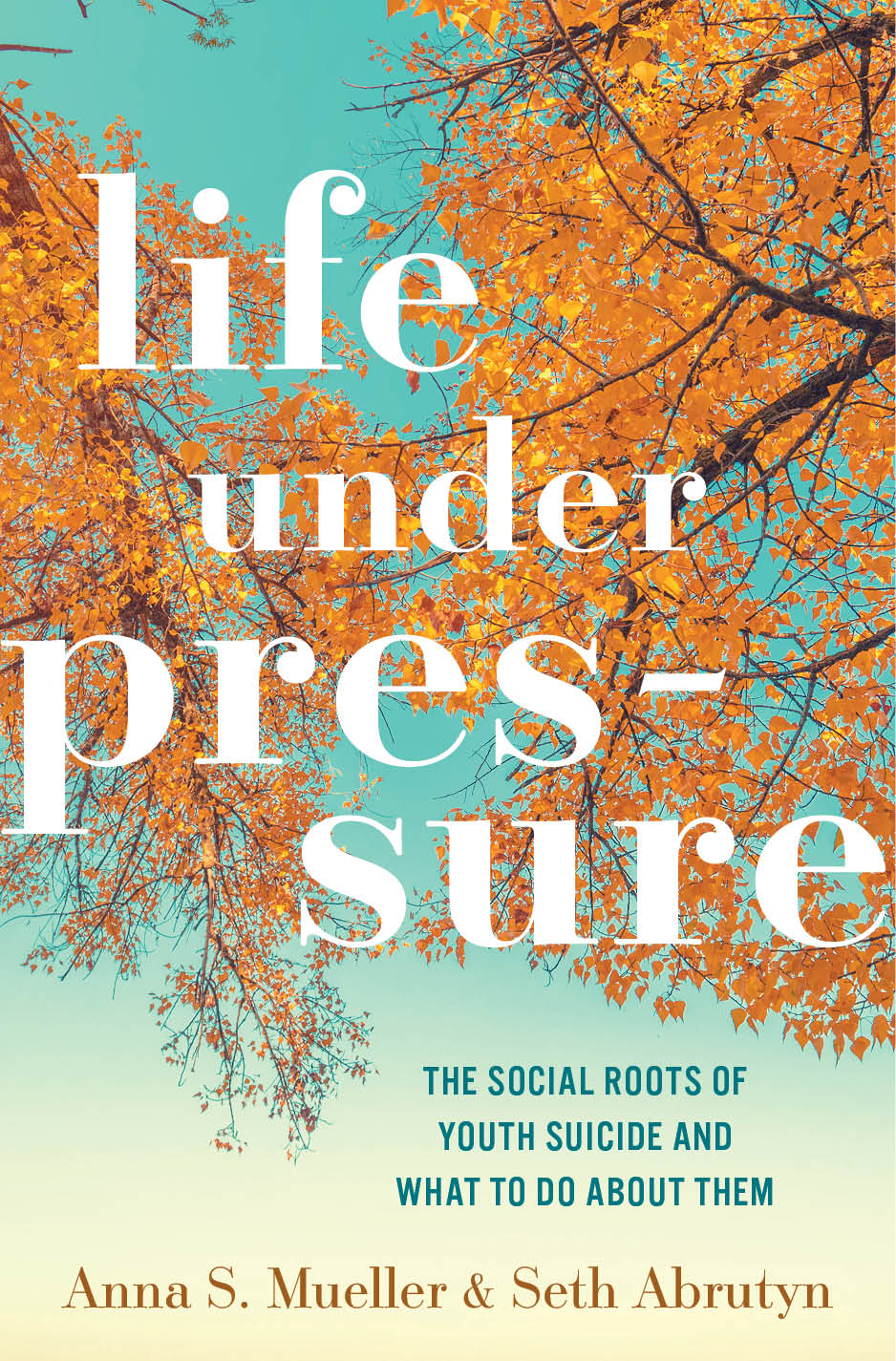

Life Under Pressure
Life Under Pressure: The Social Roots of Youth Suicide and What to Do About Them
By: Seth Abrutyn (Professor, UBC Sociology) & Anna S. Mueller
What is the book about?
This book is an in-depth community case study of a small, affluent, homogenous town with an enduring youth suicide problem. The book explores the social roots of suicide, the missteps the school and community made trying to support youth following a suicide, and how places can improve their own post-vention efforts.
Why did you write this book?
The goals were two fold. First, we were trying to bring sociological tools to bear on the question of why some places are more vulnerable to suicide than others. In particular, we were interested of bringing balance to the study of suicide, which is largely psychological in its orientation. Second, we were hoping to use the powerful voices of youth, parents, mental health professionals, and other community leaders to translate complex ideas into rather simple, emotionally charged prose. We wanted to do justice to their experiences and offer help to this specific place, while also bringing these ideas to a wider audience. The hope is other teens, families, and schools can become reflective in identifying the potential roots of tragedy while strengthening the sources of youth well-being and positive mental health.
What do you hope that readers will take away?
First of all, I would hope that people see that suicide, like most other behaviors, has social roots as much if not more than psychological roots. This is especially true when we shift from clinical settings to places that are struggling with suicide, whether smaller communities, schools, prisons, Indigenous communities, and so forth. Second, I would stress that recognizing that there are social roots can begin the process of thinking about how mental health safety systems work, and how we can improve safety systems to help catch kids and adults in distress long before they become suicidal. And, finally, this book pushes us to be deliberate about postvention, thinking about how to support kids, parents, and school staff amidst a tragedy.
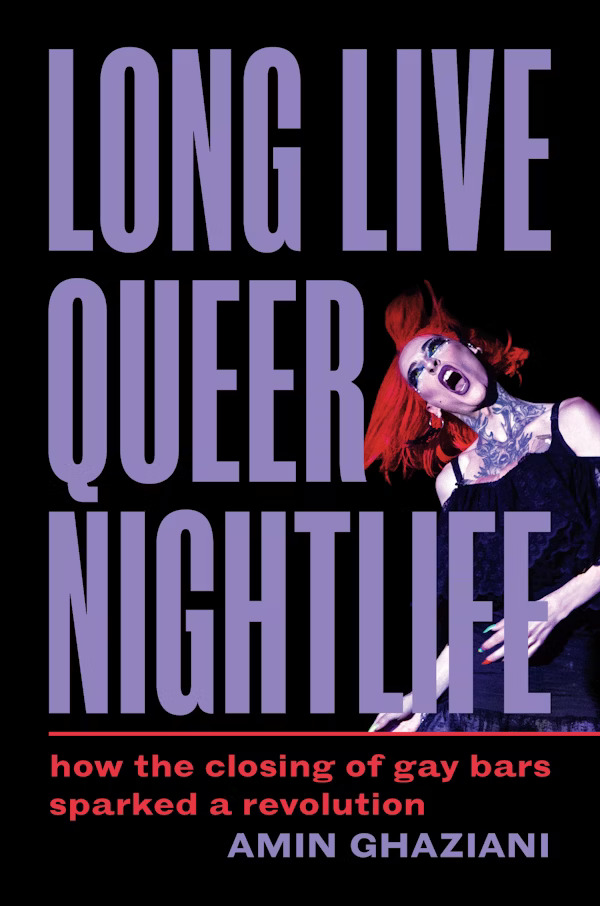

Long Live Queer Nightlife
Long Live Queer Nightlife: How the Closing of Gay Bars Sparked a Revolution
By: Amin Ghaziani (Professor, UBC Sociology)
What is this book about?
In 1976, there were 2,500 gay bars in the United States alone. Today, there are fewer than 1,400—worldwide. My book is about this “closure epidemic,” as some public commentators describe this staggering loss of LGBTQ+ community spaces. Rather than explaining why gay bars are closing, as many others skillfully have already, I shift the question to something less often asked: how is nightlife changing? The main argument is that nightlife is changing from fixed and emplaced bars to episodic and event-based scenes. A new generation of underground, radically inclusive, pop parties are emerging from the ashes of closed gay bars.
Why did you write this book?
The book was an accident! I had no intention of studying nightlife, nor did I know anything about the underground parties that are the stars of the pages. I arrived in London, which is where the book is based, in January 2018 on a sabbatical when a friend invited me to join him at the London School of Economics and Political Science, where he is a member of the faculty. It was only after I arrived that I tuned into the conversation about the closure epidemic. And from there I followed my nose. I guess that makes my book a blend of serendipity and science.
What do you hope readers will take away?
Loss can be an invitation to create something new. Gay bars are important and incomparable places, but bars are not the sum total of nightlife. Rather than simply lamenting their loss, I want to invite readers to think about how nightlife can persist and, especially, where new joys await. That humble, three letter word plays a huge role in my book. I think we need to insist on joy—not as naively disconnected from a world in which there is suffering but as a salve to that suffering. Anything but trivial, joy is life-enhancing and deeply political. I hope readers think about this theme, and even feel it, as they party hop through my book.


